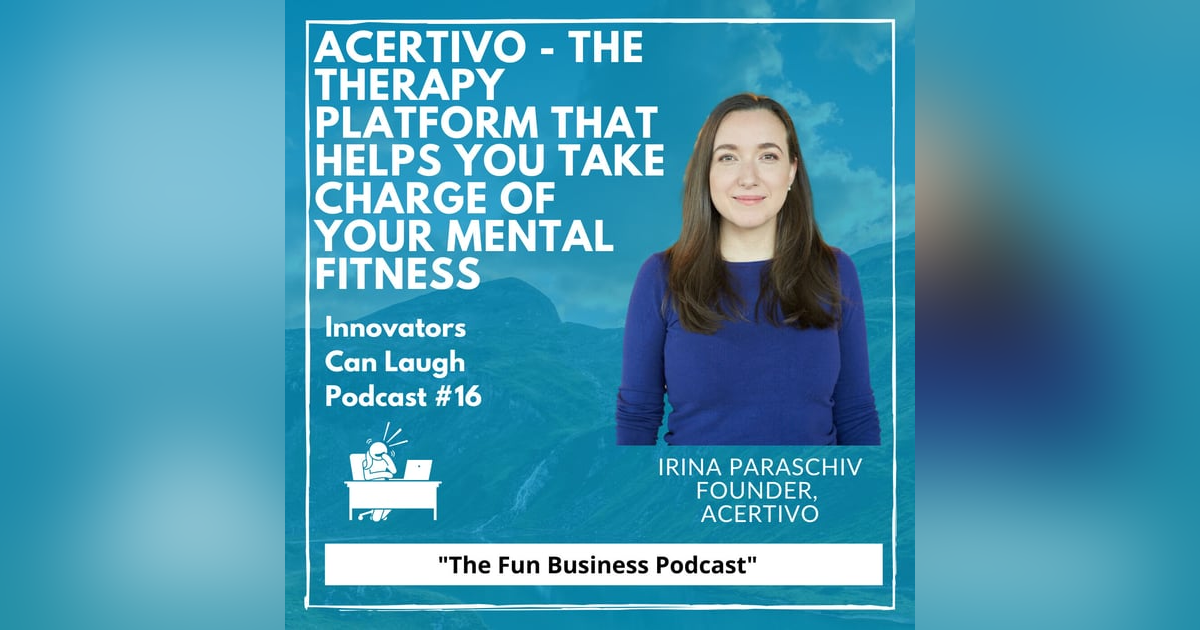Aug. 11, 2021
Acertivo: the Romanian startup and therapy platform that helps you take charge of your mental fitness

In this episode of Innovators Can Laugh, I sat down with Irina Paraschiv, founder of Acertivo. We discuss how people have a big misunderstanding when it comes to mental health, signs to look for when your mental health starts to break down, and Acertivo - the low touch therapy platform that helps people take charge of their mental fitness.
| In this episode of Innovators Can Laugh, I sat down with Irina Paraschiv, founder of Acertivo. We discuss how people have a big misunderstanding when it comes to mental health, signs to look for when your mental health starts to break down, and Acertivo - the low touch therapy platform that helps people take charge of their mental fitness.











